

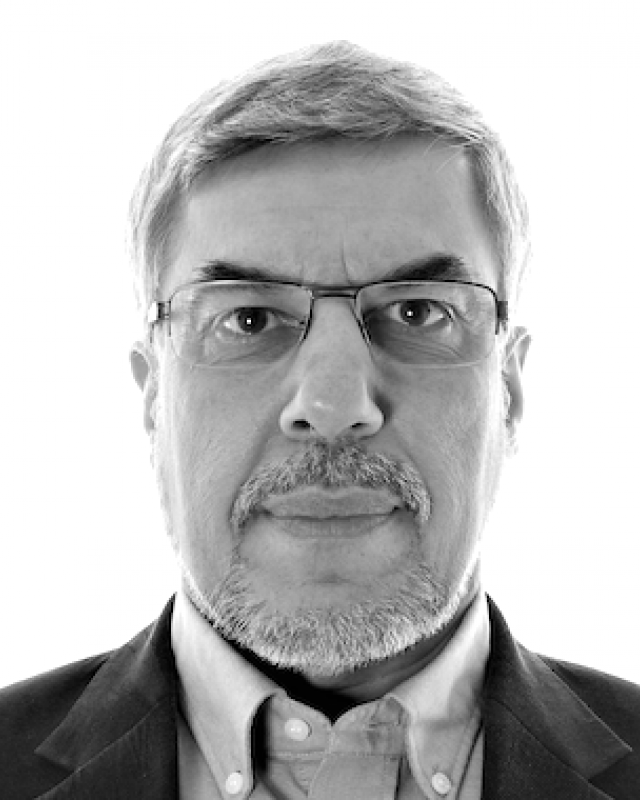
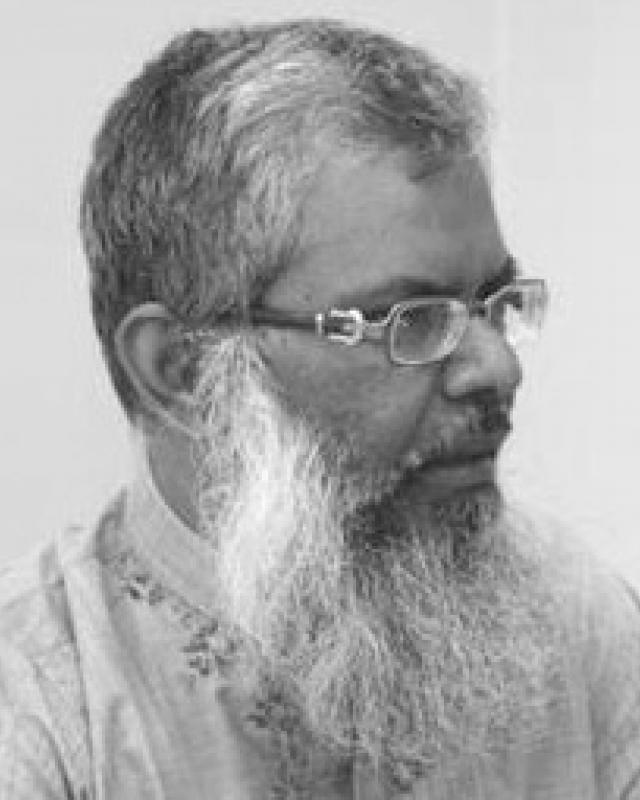
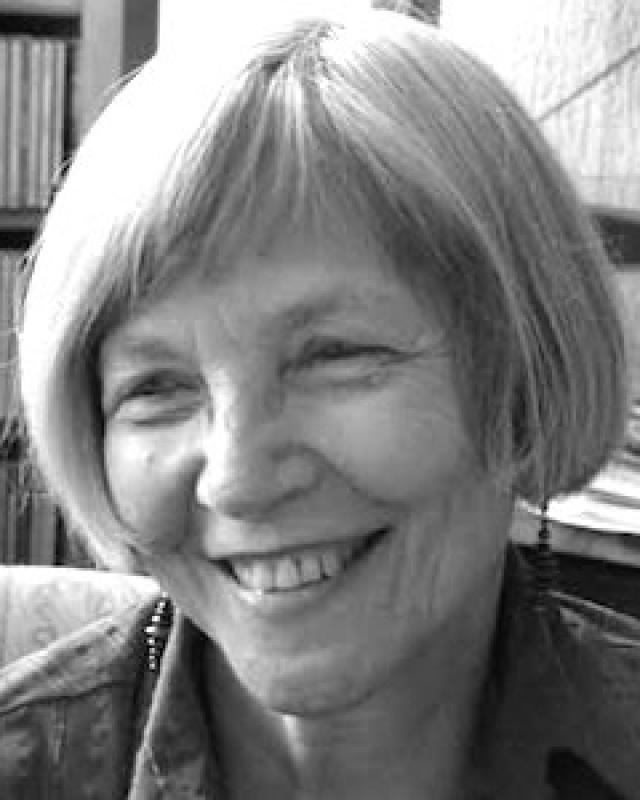
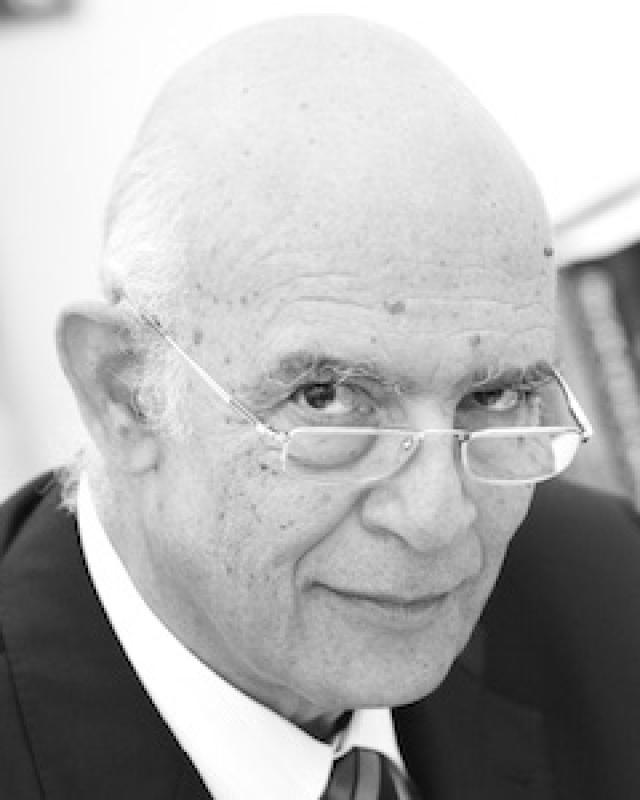
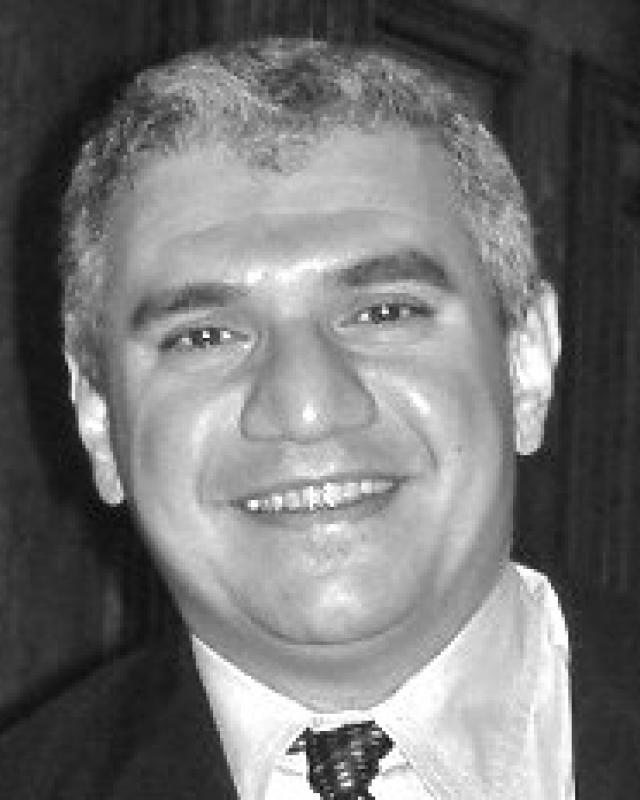
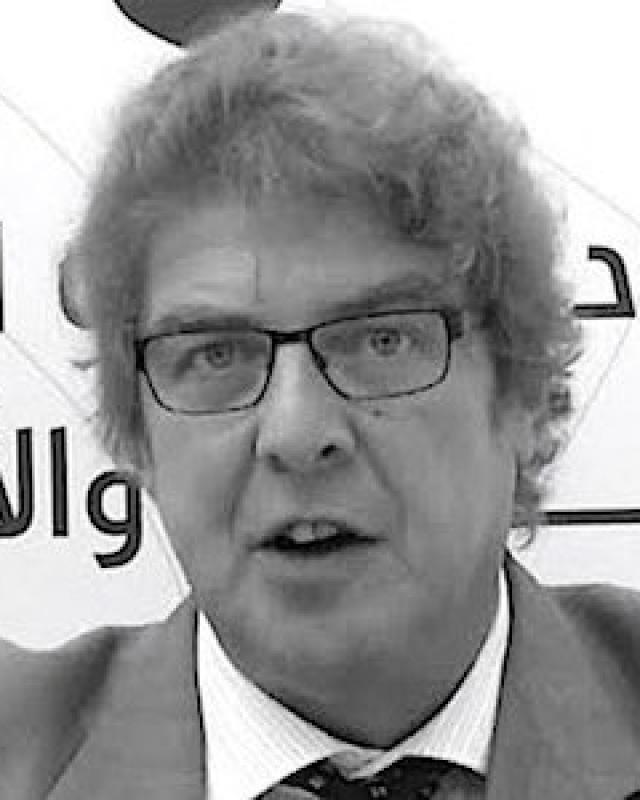
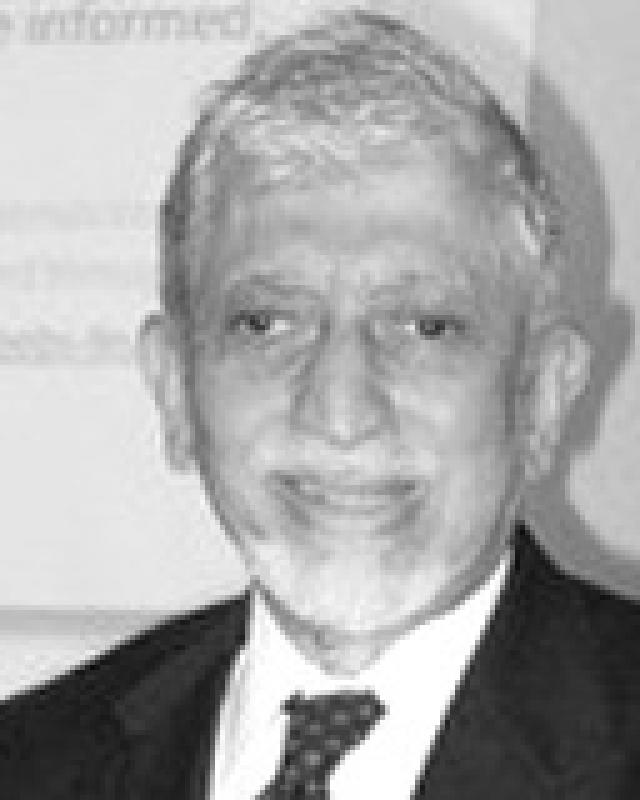
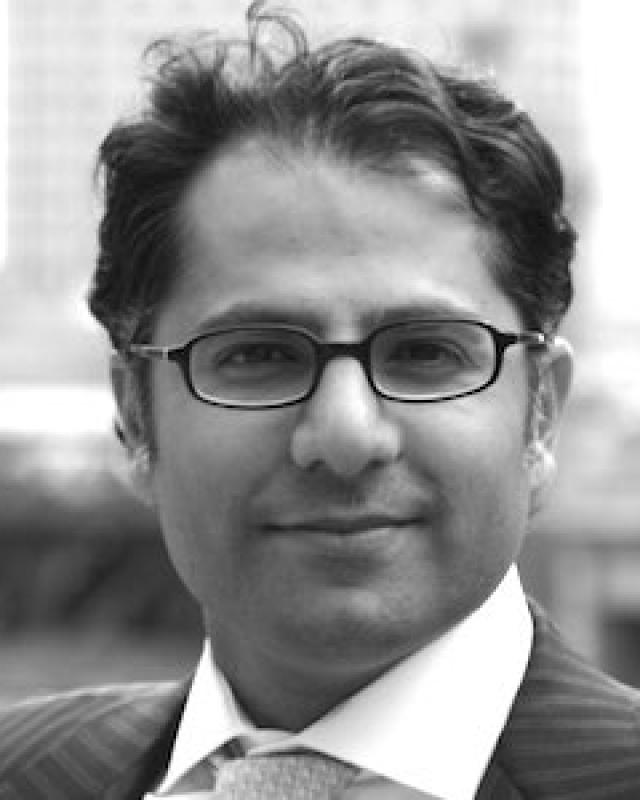


The Research Center for Islamic Legislation and Ethics held a seminar on "Ethics and Economics" over three days, from Tuesday June 10th to Thursday June 12th, 2014 at Qatar Faculty of Islamic Studies, Hamad Bin Khalifa University in Doha, Qatar. The researches and discussions presented to the seminar approached two central questions: First, "What are the main objectives of financial institutions in the current neo-liberal economic system in relation to the individual, society, state and global economy?” Second, what are the main objectives of ‘Islamic Finance’ in relation to the individual, society, state and global economy? The two questioned raised the issue of comparing objectives or maqasid in the neo-liberal economic system and Islamic system in relation to the individual, society and global economy. Participating professors presented four research papers to the seminar exploring and analyzing these two central questions. Other participants made comments on these papers. All participants partook in discussions and dialogues about the papers submitted and commented posing critical points for discussions, extracting concepts and highlighting points of agreements and differences around the raised issues. The first paper was presented by Dr. Philip Molyneux[1] who outlined in his paper "Back to the Future in Banking" the key role of banks in the neoliberal economic system highlighting their importance to economies in general and how financial systems aid growth. He then went on to discuss the features of major banking systems illustrating issues associated with scale, complexity and distorted bank business models as well as the relationship of banking system with the fierce economic crisis of 1929-1933 and of 2007-2008 that lasted for years and entailed substantial costs and support by governments. In conclusion, Molyneux states that global banking systems are in a state of flux being subject to major structural and regulatory reform. In particular, advanced economy systems in Europe and the U.S have been hit by major collapses over 2007 and 2008, and the euro sovereign debt crisis has forced the creation of a new environment for resolving troubled institutions. Banks everywhere, he points out, have to hold more capital, liquidity, reduce their exposures to risky business and revise their governance structures. From his viewpoint, there now appears to be race to the top to have safer banks and banking systems – this will constrain their ability to extend credit although it is not crystal clear as how this will play out. Molyneux states that finance has less of an impact on economic development the bigger and more advanced the economy – so as most of the new regulations impacts the largest banks in advanced economies, it may not have a major adverse influence on growth as Molyneux expected. However, this begs the question as to what big banks do to benefit the economy overall. Banking systems in advanced economies have evolved into distorted structures, too big, complex with dis-functional business models. They still pose a systemic threat when they still benefit from safety net subsidies that engender moral hazard problems. Regulatory reform has sought to make banking systems safer and to reduce the likelihood of future taxpayer bailouts. But the issues of size, complexity and skewed business models focusing on trading at the expense of traditional intermediation have not been fully addressed. We still have banks bigger than domestic economies and financial systems much larger than the countries in which they operate. Molyneux states that more constraints on banking should be considered, because the new-liberal economic system is till protecting large banks from fall within the frameworks of ‘Too-Big-To-Fail’ (TBTF) or ‘Too-Systemically-Important-To-Fail’ (TSITF). There is a case to regard big banks as public utilities and regulate them accordingly. Also the role of government in the banking system should be considered, maintaining a robust state bank (or banks) can provide the economy certain benefits helping to coerce private sector institutions, direct resources to policy important areas and providing support in times of crises. Clearly, the move over the last few decades towards a liberal market based environment has not been optimal – such an environment caused a financial crash last seen in the Great Depression. What was the response to the Great Depression crash – well commercial banks were constrained from being universal, branching restriction, merger controls and a wide array of business activities were proscribed. It took between 50 to 60 years before these constraints were gradually removed. This provides a salutary lesson – reforms being proposed in the U.S and Europe are not as draconian as the aforementioned. Throw in the heightened role of the state in the recent economic crisis, it seems, for Molyneux, sensible to suggest that a public/private mix for banks may provide a better solution than the liberal privately focused model that has been shown to have serious flaws. In his comments on Dr. Molyneux's paper, Mr. Kavilash Chawla[2] said that naturally working banks within the new-liberal economic system aim at maximizing their profits, which is not necessarily in agreement with social interests that require directing funding for better economic development. That is why Molyneux suggested a public/private mix for banks citing the views of Freidman that the neoliberal economic system, through the free market mechanism, is the ideal process for distributing the available resources in relation to the individual and society. However, it frequently raises a question: has the market within the neoliberal economic system achieved balance, at last, between the individual interest and the social interests? Kavilash affirms the inability of the market mechanism, within the neoliberal economic system, to efficiently allocate resources where preconditions of perfect information flows do not exist as increasingly visible. The recent financial and economic world crisis proved the stark inability of this system to bring about equilibrium between private and public interests. The fact that financial institutions in the neoliberal economic system have no obligation to the society other than to enable utility maximization has proven to be unsatisfactory and unfulfilling. He went on to emphasize that banks in the neoliberal economic system have failed to fulfill their objectives of allocating resources effectively towards enterprise and economic development, and financial institutions within the neoliberal economic system have proven to be unsatisfactory in meeting human needs and desires. In his paper "Building Genuine Islamic Financial Institutions ", Dr. Asad Zaman[3] states in various expressions using citations from the Glorious Qur'an that the spirit of Islam is in stark and violent conflict with the spirit of Capitalism. Capitalist financial institutions are designed to support the process of accumulation of wealth, which is at the heart of capitalist societies. Central to Islam is the spirit of service, and spending on others, which is expressed by diverse and service-oriented institutions. He went on to criticize banks of capitalism due to their support of the obtainment, hoarding and accumulation of wealth. Such banks support the concentration of wealth in the hands of a small number of the wealthy; they collect savings from large numbers of small depositors and transfer them to large investors, thereby causing an increase in concentration of wealth in the hands of the already wealthy. Islam is strongly opposed to concentration of wealth in a few hands. The Quran (59:7) states that acquired wealth should be given to kindred, wayfarers, orphans and the needy so that “it may not (merely) make a circuit between the wealthy among you.” This has been universally interpreted as an encouragement for the circulation of wealth, and an admonishment against concentration of wealth in a few hands. Asad Zaman asks whether Banks are necessary to modern economic systems or not? In response, he said "Yes: banks are necessary within a capitalist economy" but within the Islamic system, they are not necessary unless it is possible to replace this fixed and secure interest with a variable rate based on Musharka contracts. The researcher went on criticizing the experiences of Islamic Banks from this perspective, as they attempt to replicate the capitalist banking institutions. The success of Islamic banks in his view needs to change the entire structure of the economy to an Islamic one, which has not achieved yet. Asad Zaman discussed in detail the conflict between the Islamic moral behavior and the behavior in capitalist community. For him, Islam encourages spending on others and he cites the institution of Waqf while in capitalist societies, one is encouraged to save wealth and to use it to generate even more personal wealth. This is one of the primary functions of Banks, to encourage savings and accumulation. Actually, selfishness and love of wealth are basic characteristics of human beings and have further evidence in the Quran. However, God guides human beings to transcend these desires and pursue to please their Lord by work for the Hereafter. He emphasized that Muslims have always been generous as a community. Even in present times, where Muslims as a whole are far from the practice of Islam, this continues to hold true. An ICM research Poll in 2012 found that Muslims were far ahead of all other communities in charitable giving. Similarly, a Pew Research Center survey in 2012 documents that large percentages of Muslims make charitable donations. Najam (2007) provides similar data on the generosity of Muslims, relative to other communities. Asad Zaman thus strongly recommends the revival of the institution of Waqf as a genuine Islamic institution, which embodies the Islamic spirit of generosity. These institutions performed a central role in provision of social services in pre-colonial times. Comparing banks to the institution of Waqf, Asad Zaman said, "Whereas banks are designed to bring depositors the earning of this world, Waqf are designed to generate earnings of the Akhirah. This difference in spirit is the essential difference between Islamic and Western worldviews. Just as banks compete to find the best investments in Dunya, so the Awqaf compete to find the best investments for the Akhirah." In his discussion on the betrayal of trust and banking system, Asad Zaman sharply criticized banking institutions. For him, banks gambled with the depositors and money and lost in a stock market crash that led to the Great Depression of 1929. Millions lost their life savings, jobs, and incomes as production plummeted. Strong banking regulations put into place prevented a repeat of the crisis until the global financial crisis of 2007-8. In his evaluation of the course of the western banking system, Asad Zaman said, "When we tabulate the costs and benefits, the costs of the banking crises far outweigh the gains from the banking system when considered over the course of the entire past hundred years. Thus, instead of rushing to blindly imitate western institutions, Muslims should examine the historical record of repeated disastrous failures of the Banking system. He then moved to discuss the Islamic alternatives suggesting “Dar-ul-Amanah” to denote an institution which has the primary purpose of keeping assets of depositors safe. The replication of an institution for this purpose, he maintains, will require several innovations to suit the needs of modern times. He proposed his idea of “Dar-ul-Amanah” as possible to accept deposits as loans from the depositors suggesting that deposits at Dar-ul-Amanah may be split into three components: One portion could be a pure safekeeping, where the deposits will be physically stored and kept safe (in form of gold and silver). A second portion could be designated for investment purposes. These deposits could earn money, but would be at risk for loss as well. The third portion could be designated as a loan for social purposes from the depositor to the Darul Amanah. Conventional banks, he states, maximize worldly profits by investing in capital. In accordance with the spirit of Islam, Dar-ul-Amanah should use the deposited funds (as interest-free loans) to create human and social capital denoting that recent studies show that the wealth of nations is more in the form of human capital rather than physical capital. Thus the investments in humans can actually produce more profits than the western financial systems which focus on physical investments. In conclusion, Asad Zaman presents what he called "general purpose institutions" that signify alternative institutions intended to undertake the role of conventional banks. In his view, "These institutions will allow people with excess wealth to participate in trading or investment. These differ from conventional banks in some crucial respects. Profits earned by participants are compensation for risks of business, not by use of deposits for earning of interests. For him, they also differ from the "so-called Islamic banks" that attempt to replicate this western model, by allowing people with wealth to earn money without taking any risks or providing any service to society. This creates the same ill effect of concentration of wealth which is produced by conventional banks. He then differentiated between "the general purpose institutions" and the "special purpose savings institutions" as some special purposes for which savings are permissible or even recommended. Many benefits can be derived by the creation of special purpose savings organizations which target specific needs of Muslims. A key to this discussion is the idea that these organizations will provide real services, not just financial ones. For example, it is permissible and desirable to save money for performing Hajj, purchasing a private house or facing health emergencies. In this context, he denotes to an extremely successful financial organization which caters to people saving for hajj as well as investment of wealth in Malaysia. This experience may also prove successful in savings projects that offer real services such as housing and health, not just to use public savings as is the case with capitalism. In her comments on the paper of Asad Zaman, Catherine Samary[4] said that she definitely shared the idea that a serious discussion on ethics in the contemporary globalized capitalist system and its financial institutions must focus first on the “general spirit”, anatomy, and historical specificity and transformations of that very system as such. She also approved the opinion of Asad Zaman about the negative role of the dominant “Economic models of Human Behavior”. She briefly denoted that this general agreement on some issue is indeed, not enough to answer the question raised: What are the main objectives of financial institutions in the current neoliberal economic system in relation to the individual, society, state and global economy? Apart from the ideas of Asad Zaman's paper, Samary explained the spirit of liberalism, liberal ethics and institutions from a modern communist and marxist perspective. She is of the opinion that the liberal society became dominated by the market (it was transformed into a “market society”) instead of controlling it. She pointed out that recurrent crises, since the 19th century, show that market does not provide a stable growth – and “growth” itself does not mean “justice” in the condition of production and distribution, neither efficient satisfaction of needs – especially those which cannot be expressed through money, like human dignity or environmental issues. She also discussed the private property and how was “private property” transformed by capitalism posing the question: Are the “owners” - when they become shareowners really “responsible” and respecting ethical criteria of management? Can we consider as ethical a social relationship of ownership which conceals exploitation and treats a human being like a machine? Samary explored the deficits of "neo-liberal narratives and how, on the side of resources, instead of redistributive policies of Keynesian inspiration, the accent was to be put on decreasing taxes on capital and bond issue; and on the side of expanses, social protections had to be reduced. Another financial market developed dramatically: that of public bonds, articulated with different rates of interest on the public debt and unstable rates of foreign exchange. Catherine Samary believes the neo-liberalism pushed forward a world competition without limits where new reduction of wages and disastrous environmental sources of energy (like shale gas) would increase “competitiveness”. Because high “returns on investments” are waited for, shareholders even buy massively their own shares to increase what is deeply “fictitious value” - without real investment policies. In this context, the crisis which began in 2007/8 in the US as a financial and banking crisis, turned into a deep recession. The “sovereign debt crisis” coming from the bailing out of banks has been used in Europe and Western countries to make a new push forward the neo-liberal agenda. She points out that all available data prove that the financial logics of the Capital system in the Twenty-First Century, leads us towards the level of inequalities which existed at the end of the 19th century. This can only produce social explosions and criminalization of resistances while the banking system itself becomes “too big to jail.” In conclusion, Samary states that there is an urgent need of alternative logics, which would have “embedded” economy in social, ethical, ecological choices based on solidarity and democratic choices. Dr. Ali Mohyi Al-Din Al-Qaradaghi[5] also presented a paper to the seminar entitled "The higher objectives of Islamic finance in relation to the individual, society, state and global economy" in which he defined and classified the maqasid (objectives) of Sharia. He mentioned three kinds of maqasid: the general maqasid, the private maqasid that only address a certain topic, e.g., the finance which in turn comprises a set of contracts, or address a number of specific topics and the partial maqasid restricted to a certain injunction, whether there is only one or more maqasid behind the injunction. For example, the command imposing the record of debts in writing has several underlying purposes. He went on to discuss the importance of identifying the private maqasid and recognizing its impact on legal differences. After introduction, he discussed in detail the objectives of Islamic finance in relation to in relation to the individual, society, state and global economy. In respect of the individual, he mentioned ten objectives beginning with "bringing about the true service and devotion to Allah regarding the wealth, then safeguarding and developing the wealth, guaranteeing the economic security for individuals, collecting and managing individual savings by finance and investment in pursuit of development and the accomplishment of human stewardship and control over the earth by means of reform and settlement for the interest of humankind and the creation as a whole, actual exchange of in-kind objects and benefits, providing individuals with good things and helping them achieve happiness by directing finance, alleviating the effects of poverty, unemployment and inflation, enhancing and supporting the individual and the community by virtue of successful finance and pioneering investments, contributing to the circulation of wealth among the people to guarantee the concentration of wealth in hands of the wealthy and finally activating the supply-and-demand law under the control of ethics and virtues. In his discussion of the social objectives of Islamic finance, al-Qaradaghi maintained that the objectives mentioned in relation to the individual are included, primarily or eventually, in the social objectives but the community has its specific objectives that he summarized in six objectives including the formation of a religious community that is committed to make all economic activities compliant with the rulings and principles of Sharia and high ethics and values, the achievement of development of the society on all social, cultural and intellectual levels, the contribution to the reform and construction of the earth to help the human mission of stewardship materialize, the achievement of economic justice specifically in the area of distribution and redistribution, the accomplishment of economic and social interdependence and the mitigation of consequences of poverty, unemployment, inflation and backwardness as well as giving hand to the radical treatment of these problems. Al-Qaradaghi then explored the national objectives of Islamic finance which he epitomized in four points: strengthening the state economically to the point of self-sufficiency by invigorating the movement of finance and investment, supporting the stability and enhancing the economic security as a complementary factor for the political security, contributing to the increase of total demands and supplies of products in a manner that leads to the invigoration of the whole economic activities, helping the state to undertake the role it owes to civilization by the construction of civilization's institutions, the social role by the guaranty of interdependence, solidarity, health and future insurance and the military role by deterring aggression and defending religion, sovereignty and national security and dignity. The state thus creates the opportune and healthy environment for finance and investment through the regulating laws that protect the rights of investors, ensure balance, direct capitals towards universal development, creation of civilization and advancement as well as public welfare. After short mention of the last financial crisis, al-Qaradaghi denoted to the global objectives of Islamic finance and how the Islamic banking system was able to escape this crisis due to the exchange of in-kind items, benefits and usufruct rights and the avoidance of usury and other recent debt securities. He then identified the higher objectives of Islamic finance as follows: Giving an actual brilliant image of the Islamic economy in general and the Islamic banking in particular; contributing to the foundation of a global economy noted for its justice and transparency and controlled by values and ethics with reliance on the actual existing items, benefits and usufruct rights under instrumental measures represented in the real contracts apart from the formal, bogus or dummy transactions. It is not a fake structure of contracts that produces a paper-arranged design and remains motionless leaving no effect on the economic cycle or on the circulation of wealth among all people. Bringing about this global economy necessitates, in al-Qaeadaghi's view, the reconsideration of the global banking structures and the financial and monetary economic system to bring about radical repair and achieve this reform. It also requires reforming and developing the international fiscal organizations, introducing a monetary policy with effective mechanisms reliant on production, growth and profits instead of usurious interest to correct the functions of money, adopting strict fiscal policies under just and able laws that can control the market and monetary institutions and keep them in balance and managing the finance and investment towards the achievement of human stewardship over the earth, namely, the universal development and construction. It is also necessary to control the economic activities and connect them with the principles of justice, benevolence and transparency for the accomplishment of individual, social and national happiness and welfare. There should also be due emphasis on the social function of money for the achievement of interdependence among the whole mankind through the just distribution for all humankind. It also entails the activation of moral ethics of dealing and the rules of lawful and unlawful transactions to have correct finance contracts in which all partnerships and ownership-transfer contracts must depend on actual possession and delivery and the charitable voluntary contracts must depend on donation without any abuse for sake of profits and interests. He emphasized that connecting the Islamic finance with the objectives of Sharia will make it universally-oriented in nature and attitude. Al-Qaradaghi partly set out the objectives of Sharia in the area of economy generally and gave actual examples. He also indicated the role of fiqh of consequences and other general rules, such as sadd al-dhara’i‘ (blocking the means to evil) and tahqeeq al-manat (verifying the effective cause behind the legal rulings) as necessary effective means to bring about the desired purpose of economic analysis with the Islamic framework. He then elaborated on the importance of connecting finance with the objectives of Sharia and the results expected from it with focus on the role of the individual objectives in economy and the role of intentions and purposes in establishing values and ethics in economic activities. In conclusion, al-Qaradaghi answered two questions on how to evaluate the course of Islamic finance and to what extent the Islamic finance presents an alternative paradigm? Or, is it possible to say that it continues to be in the chains of the current liberalistic economy? In response to the first question, al-Qaradaghi stated that his focus is only on the evaluation of the course of Islamic banks, for the great positive aspects they have. They were able to present Islamic alternatives in all fields that conventional banks used to practice in deviation from the Sharia. They thus relieved Muslims from the hardship in area of banking and preserved the wealth of Muslims by means of investment giving a good image of the stability of Islamic economy during the storming financial crisis. However, he did not mention the negative aspects of Islamic banking. For example, Islamic banks failed to creatively connect with the cycle of Islamic economy in its actual effective essence based on helping the universal development and the accomplishment of the objectives that he mentioned. Likewise, these banks "could not unite, integrate and incorporate in an influential form within a universal framework while keeping the specificity of each institution. On the contrary, they remained disunited in terms ends and results despite the titles of unions, such as Union of Islamic Banks and General Council for Islamic Banks. They failed to integrate even inside the same country, as each bank worked alone in line with its own vision." Banks also "over-depended on contracts of murabaha and tawarruq in commodities and international minerals, which are replete with doubts from all sides, specifically the organized tawarruq." For al-Qaradaghi, overall the quality of Islamic banking products has recently regressed when most real murabaha contracts turned into shadow or paper-arranged international contracts delving into the organized tawarruq and the reverse murabaha with tawarruq. Sukuk have also become so identical with bonds. Negative sides also include that Islamic banks lack necessary regulating laws in countries where they operate in most of Muslim World. Sharia bodies in Islamic banks also have no regulating laws that bind them to abide by the fundamentals of Islamic economics, which resulted in very weak and bad fatawa. There are no advanced research centers for studying the Islamic financial institutions and their products, tools, sukuk and other relevant matters in the light of the scientific progress and traditional heritage. In the view of al-Qaradaghi, such negative aspects should not underestimate the course of Islamic banks. It is possible to work out them by means of "well-studied plans, programs and mechanisms to achieve the objectives of Islamic Sharia" and "avoid complex contracts and agreements and promises made for ruses as well as shadow transactions." It is also necessary to stop exploitation and let mercy cover contracts". "Due care should also be given to the developmental, social and investment role of Islamic banks." As to the second question, al-Qaradaghi believed that Islamic finance could not present an alternative Islamic economy to replace the capitalist economy. The main cause, al-Qaradaghi thinks, is that "Islamic banking has risen and flourished under the dominance of positive economy and manmade laws and systems. Muslim governments have not helped them to found their private laws and regulations, so they remained in chains of manmade laws and regulations. In his comments on al-Qaradaghi's paper, Dr. Hatem al-Qarnashawi[6] praised the research. For him, the researcher presented a successful introduction on the analysis of Sharia objectives in his discussion of the objectives related to the individual, society and state. He also expressed his approval of the researcher's view about the relationship of finance and ethics in Islamic thought, but he maintains that finance in capitalism is also connected with its private values and referential framework that gave absolute precedence to individualism and maximization of private profits over all other considerations. He also indicated that the concept of finance in capitalism is not restricted, although dominant, to interest-based loans. In his consideration of the finance based on Islamic concepts, whether or not has achieved its objectives within the Sharia objectives, the commentator maintained that it is still at the beginning and unless we introduce financial products originated from the Islamic thought, not conventional products modified to become Sharia-compliant, it will be difficult to speak of the achievement of finance objectives on the level of the society and the state, let alone the global level. He also pointed out the fact that the major part of finance is related in practice to short-term trading works often guided by the interest rate led it to be separated from models suitable to bring about development. So far it has not introduced a desired model but exceptionally introduced alternatives for the conventional models after reforming them. Dr. ‘Abdul-‘Azeem Abu Zayd also commented on Dr. al-Qaradaghi's paper. He is of the opinion that the researcher stated that the Islamic economic system in areas of Islamic banking and Islamic finance had escaped the crisis and only slight effects touched it, as they depend on the exchange of in-kind items, benefits and usufruct rights and avoid riba-based transactions, debenture bonds, and other forms widely common in conventional banks of the capitalist system. However, for the commentator, the case is not as so, because the institutions of Islamic finance have some practices that are not essentially different from those of riba-based lending processes. For example, the ‘ena sale and tawarruq in which the Islamic bank offers money to clients in the form of a good, not essentially intended by sale, to be reimbursed later. He also praised the researcher's focus on fiqh al-ma‘alaat “understanding the consequences” in relation to sadd al-dharai‘ and his invitation to adopt the same approach in economy. In his comments on the researcher's discussion about the importance of intentions and purposes in contracts, he approved the researcher's statement: “All economic activities, in terms of permissibility/impermissibility and reward/punishment, subject to the intentions. This universal aspect of intentions is one of the unique characteristics of religiously-colored Islamic economy." But, he hoped the researcher would have explored the non-forbidden purposes, in his discussion of final ends, which lend no support to a person when an action is leading to any evil result that goes against the Sharia-based maqasid. "Accordingly, the financial institution that adopts some legal subterfuges to escape riba in support of clients to fulfill their financial fiscal needs commits some impermissible acts and this intention is ineffective. For Dr. ‘Abdul-‘Azeem Abu Zayd, another serious relevant issue in this regard is that the shady financial transactions that many Islamic financial institutions may adopt in reliance on the overall maqasid of Islamic Sharia, such as claiming that Islamic financial institutions are very recent institutions in a predominant usurious banking and it is necessary to uphold them with all means supportive of success to face their strong rival conventional banks. In this context, this maqasid-reliant justification is unacceptable, for there is no pressing need compelling these institutions to practice what is legally unlawful. "The foundation of these institutions itself is not a legally-considered need that permits the doing of what is forbidden." He then added, "Permitting this spurious practice consistent with formalities and change of names is an outright offense to Islam; it deprives the Sharia of the logic and rationality of its rulings and falsely assumes it is based on formal and shadow foundations that may risk driving Muslims and non-Muslims from it when it appears illogic and irrational." He also opposed the use of al-siyasa al-shari‘iyyah (i.e. Sharia-based principles of governing/administration) in justification of some financial practices that may not be permitted in consistency with the apparent proofs, well known juristic statements or views of fiqh academies but may be allowed by means of al-siyasa al-shari‘iyyah based on the obtainment of public good that embodies the maqasid of Sharia. Such development, he maintains, is dangerous and invalid, because acting upon al-siyasa al-shari‘iyyah is the responsibility of a Muslim government that should be decided in accordance with the principles of public interests and shura (consultations on public affairs). A proved deficiency of the Muslim government in some sides does not entitle individuals to take charge of the role of governors. Similarly, al-siyasa al-shari‘iyyah does not permit those acting upon it to permit what is impermissible and call it lawful. He also pays attention that the existence of several fatwa bodies in line with the number of financial institutions leads the fatawa product to conflict with the principal necessities of al-siyasa al-shari‘iyyah even within the same country. Moreover, the current bodies of fatwa working for some Islamic financial institutions are not independent parties whose objectivity is warranted regarding the determination of these questions in the light of the Sharia principles of administration. That is because they have some personal benefits from the results of the fatawa they issue, since the promotion of their fatawa brings about some personal benefits and help their financial institutions to avail much of these fatawa. Actually, it is an open offense to the Islamic banking activities. In his paper "Ethics and Finance from the Islamic Perspective", Dr. Muhammad Fadel[7] maintained that banks are crucial to modern finance, however, seems to be without analogue in revelation. A financial system can be described as more or less efficient by measuring its success in transferring surplus, unused funds from savers to consumers and investors. He said, "The closest analogue revealed texts provide for financial intermediation on a broad scale is that of the muḍāraba." Nevertheless, the two-tiered muḍāraba has not proven to be an ideal structure for financial intermediation, for the entrepreneur, (i.e. the Islamic bank), in contrast to a conventional bank, cannot guarantee the capital of the depositors, at least according to the historical doctrines of Islamic law. As a practical matter, depositors in Islamic banks do not expect that the funds which they place with Islamic banks should be exposed to greater risk of loss than funds placed on deposit with conventional banks. In the case of relatively poor individuals, they would be unwilling to give any of their meager savings to an Islamic bank. As a matter of politics, no government would allow a major Islamic bank to fail if that meant that the average depositor lost his savings. Fadel also discussed the way to address this problem. Choices are several, e.g., we may continue to prohibit the Islamic banks from guaranteeing the investors’ funds. Another choice is: the state may guarantee these funds, but this would result in Islamic banks choosing to invest in excessively risky projects, secure in their knowledge that if the investments fail, the government will bail them out. A third choice is for the bank to adhere strictly to traditional Islamic norms, but adopt a more conservative risk profile than a conventional bank by keeping a higher capital ratio, for example, than conventional banks, investing in less risky projects, or both. "This third alternative, which is in fact commonly adopted, is probably the worst alternative because it results in the greatest efficiency losses: the bank refuses to fund prospectively profitable, but relatively risky, ventures, because it must maintain sufficient reserves to pay the depositors. At last, he concluded that conventional banks, operating with deposit insurance, would be a more efficient in deploying savings than a similarly situated Islamic bank that cannot guarantee its deposits. This raises the question of whether efficiency is itself an important value within Islamic ethics. He answered this question from the economic general side, stating that a system is efficient only when all resources available to it are optimally utilized. Essentially, maximizing efficiency is simply another way of saying minimizing waste. He then cited evidence in revelation that shows that efficiency is indeed an important Islamic ethical value. He also cited contextual evidence and examples in the Islamic jurisprudence for the same purpose. In this context and since is indeed an important Islamic ethical value, Fadel maintains that t is necessary and even logical that reasoning ought to apply to the problem of guaranteeing the deposits of banks. That is because, the entrepreneur in muḍāraba – in this case, the bank – "must be held liable for the loss in order to prevent wasteful investments in high-risk projects." Only by providing this guarantee, will the full benefits of financial intermediation be obtained. "Based on the foregoing, it follows that an overriding purpose of Islamic finance is to minimize dead-weight social losses, even if they arise in connection with practices that are formally compliant with the rules of Islamic law. In fact, one might say that whenever adherence to formal rules of Islamic law lead to dead-weight social losses, the higher principles of Islamic law, in this case – rafʿ al-ḥaraj – dictate the recognition of an exception, a rukhṣa, to the normally applicable rule. This principle ought to be applied across the board in the analysis of all contemporary transactions and financial institutions with the goal of achieving a sustainable equilibrium that is reasonably stable." Fadel then explored the application of Sharia rules to Islamic banks and to what extent it was a mere form leading to undesired effects. More seriously, it risks undermining the public’s confidence in Islam when they discover that the Islamic product is substantially no different from the conventional product, and in some cases, even more burdensome. Finally, Fadel wonders whether the creation of Islamic financial products –in the credit or the equity markets – has resulted in "a net increase in banking deposits and equity investment in public companies, i.e., it has convinced people who otherwise would not have deposited their surplus funds with conventional banks or to invest them in public equity markets, to place them with Islamic banks or Islamic investment funds. It is fair that increasing the overall efficiency of the financial intermediation system has nothing to prove. He also suspected that the introduction of Islamic finance in some Muslim-majority countries has succeeded in increasing the overall efficiency of financial intermediation in those countries. In his comments on Muhammad Fadel's, Dr. Dr. Abdullah Yusuf al-Judai‘ saw that it briefly responds to the fundamental question of the seminar: “From an Islamic perspective, what are the main objectives of ‘Islamic Finance’ in relation to the individual, society, state and global economy? He then provided an overview of the essential objectives of finance, including the development of wealth per se by means of circulation in denial of hoarding, the fact that brings about the development of society for the societal welfare of all individuals, which is one of the basic duties of the state. As for the verse on hoarding wealth, “Those who hoard gold and silver and spend it not on the path of God, unto them give tidings of a painful punishment”, (al-Tawba, 34-5)”, it is an outstanding proof for the duty of circulating wealth and the prohibition of hoarding. In reply to some of Muhammad Fadel's views, al-Judai‘ states, "Hoarding differs from saving. It is even authentically reported that the Prophet saved money." Overall, he agreed with the researcher's presentation of several barriers that hindered the “Islamic” finance, referring them to "the historical doctrines of Islamic law, namely, the legal opinions of schools of law and to the superficial approach in dealing with the changing reality in response to these historical characteristics and legal views. For him, muḍāraba, upon which Islamic banks depends, has no root in revelation, so we should develop it. It is a contract that has always submitted, in old and modern times, to the juristic views and maxims. Simply, if it is part of the revelation, "we have nothing in dealing with it but to adjust our understanding to befit its context as basic fundamentals for religious creed and faith." As to the statement that the bank is an institution that seems to be without analogue in revelation, he said that it needs exact elaboration; this model in form and function has no analogue in the time of legislation but in vision and objectives, it is included under the general rules of Sharia. As to the role of muḍāraba in Islamic banking, al-Judai‘ agreed with the researcher's criticism of this idea as well as the problems caused by its application. For him, it needs more development. However, he disagrees with the researcher's view that the strict adherence to the historic traditional doctrine of muḍāraba resulted in the failure of halal (permissible) enterprises in Islamic banks vis-à-vis haram (impermissible) enterprises of “conventional” banks. As far as ethics is concerned, this point is a core problem since it gives the image that “Islamic law” is a barrier to better development and achievement of overriding purposes, a matter which is beyond imagination, let alone its acceptance. Indeed, the Sharia in its capacities of perfection as well able to bring about the real interests of life cannot be a barrier to that and the idea of “failure” per se is a decisive proof for the human errors that may intervene with the interpretations of Sharia." He also expressed his agreement with the researcher that "It is necessary to turn from the traditional view that the entrepreneur is not liable for capital losses but, in reference, I cite another – I think more suitable, argument. Evidently, al-Judai‘ adds, his argument admits the acknowledged prohibition and gives exception to the rule for sake of legal purposes that imposes the construction of legal decisions on basic rules, not on exceptions. Al-Judai‘ went on to say that "Rules of Islamic law are not legal texts that are mandatory on Muslim Community; they are largely, not absolutely, applicable. They are also manmade rules subject to human flaws. For example, the famous rule: “A loan that incurs any utility is a form of usury”, which is a basic rule for so many detailed cases in respect of usurious and financial transactions, it is legally a weak rule, for it has no valid evidence to support. Finally, he said that "the superficial adherence to the historical legal doctrines lending them unquestionable acknowledgement with no care for the fundamentals and objectives of Shari‘ah forms an ethical problem, for the imitation and dependence included as well as the suspension of intellects from creativeness in legal theories and practices. This kind of strict adherence is a stark violation of Muslim national powers, abilities and elements, not a preservation of the Sharia framework" [1] Bangor Business School, Bangor University, Bangor, Gwynedd, LL57 2DG, UK Tel: +44 1248 382170. Fax: +44 1248 383228. Email: p.molyneux@bangor.ac.uk [2] Managing Director, Nur Global Strategies, and Visiting Scholar, Drake University. [3] DG, IIIE, International Islamic Univ, Islamabad [4] Professor, University of Paris. [5] Secretary General of the IUMS and Vice President of the European Council for Fatwa and Research [6] Dean of Islamic Studies Faculty, University of Hamad Bin Khaliaf in Qatar. [7] Canada Research Chair for the Law and Economics of Islamic Law and Associate Professor of Law, University of Toronto, Faculty of Law.



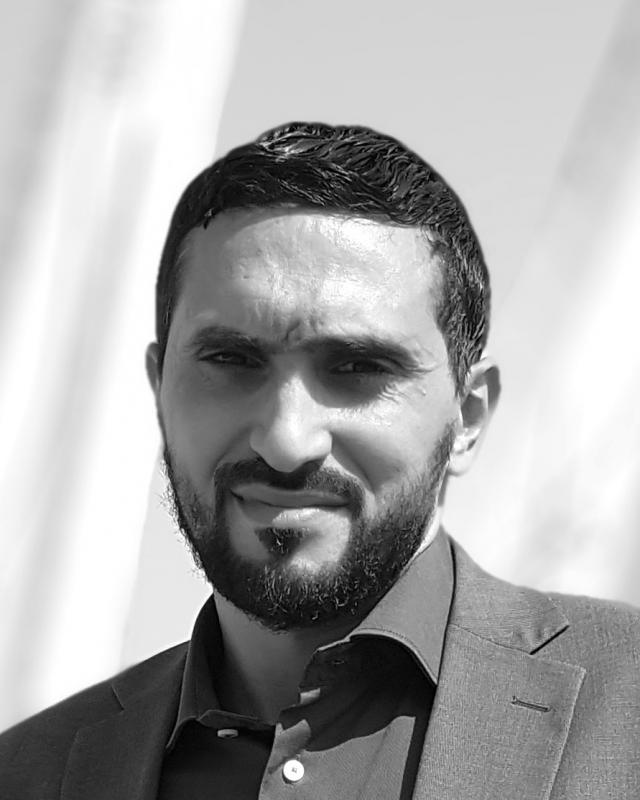

Add new comment